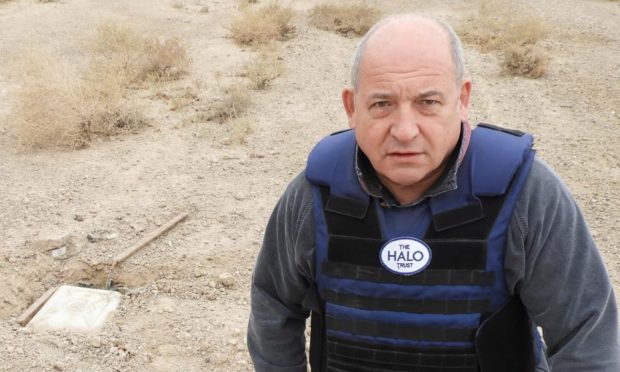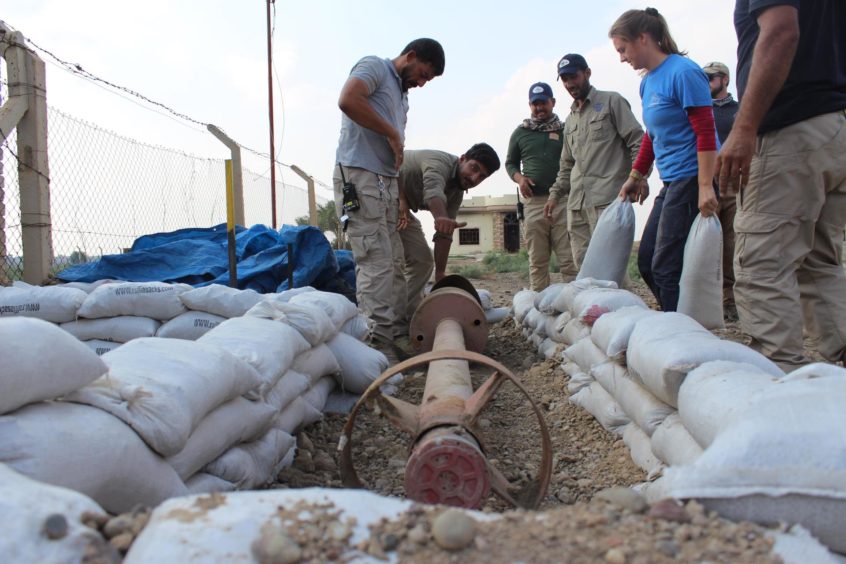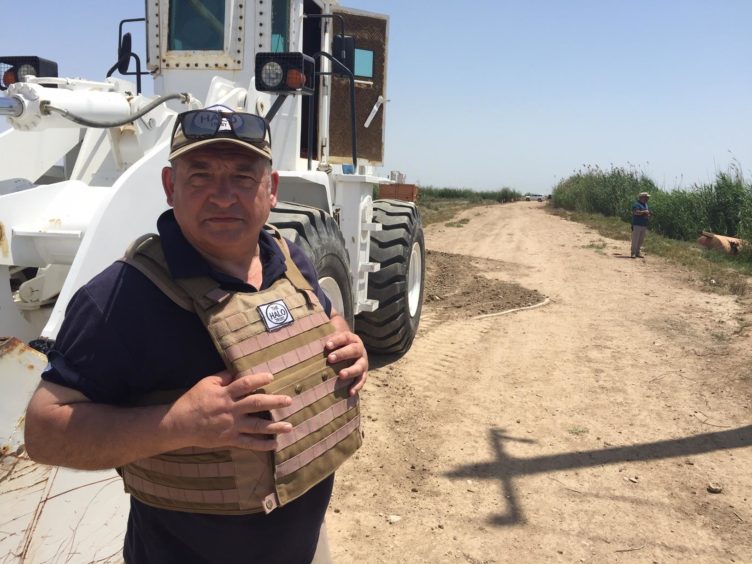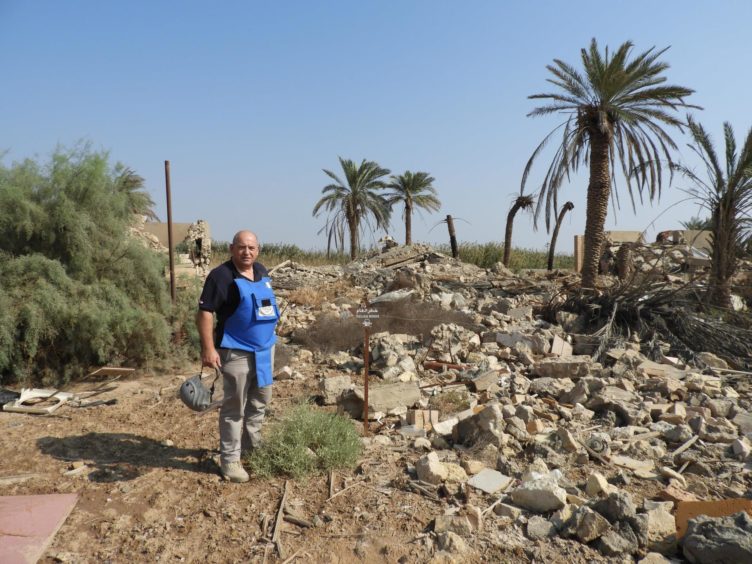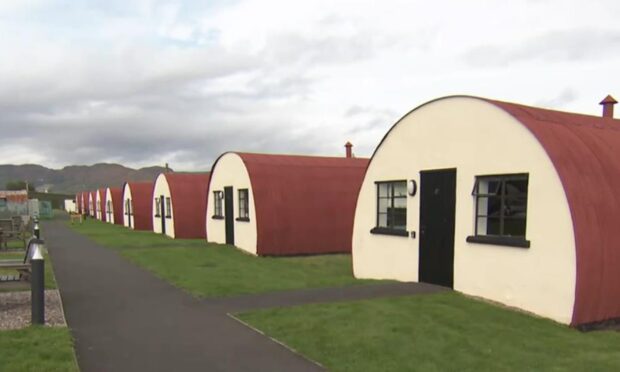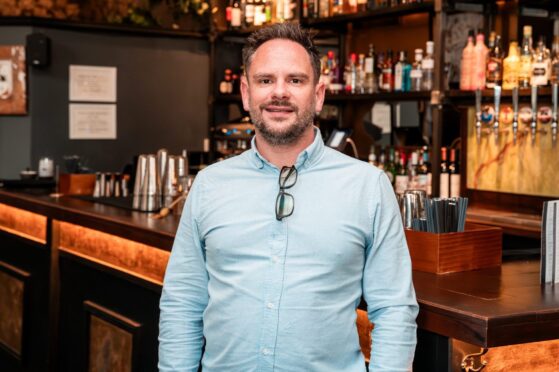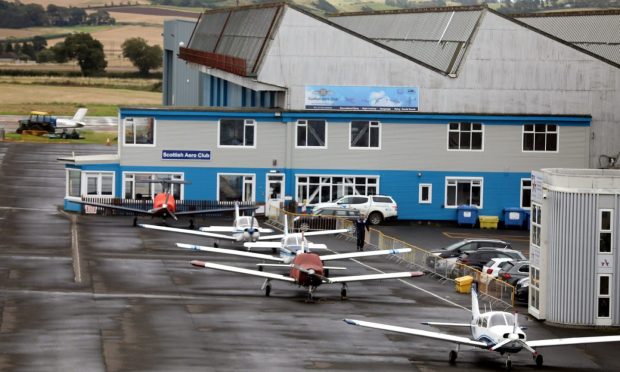A brave Tayside veteran is celebrating after helping a Scottish charity to destroy more 1,000 explosive devices in Iraq this year.
Montrose-born Frank Philip, 61 has spent the year dodging danger in the country, which has been ravaged by war since the US and UK-led invasion in 2003 to remove leader Saddam Hussein.
Former soldier Philip – who now lives in Kinloch Rannoch in Highland Perthshire – returned to Iraq to lead the fight against deadly landmines as Dumfries-based HALO Trust’s programme manager in Baghdad.
Removing the hidden threat
He said: “Covid restrictions have meant our operations have been a bit stop-start. We suspended all our operations when the Iraqi government understandably put the country into lockdown.
“We kept people in place during the height of the pandemic so that when we did get the green light to go back to work in mid-June, we could do so with the minimum of delay.
“And despite the stop-start nature of this year, we’ve removed the threat of over 1,000 explosive weapons.
“Destroying our 1,000th IED since we started our operations in August 2018 was an encouraging landmark.”
‘You see a lot of limbless people in Iraq’
Dad-of-three Frank Philip served 30 years in the army with regiments including the Gordon Highlanders before joining the HALO Trust.
He was awarded an MBE in 2004 for planning and implementing the military response in Scotland to the firefighters’ strike in 2002.
He said the landmines, and other improvised explosive devices, had taken a huge human toll in the Middle-Eastern country.
“You see a lot of limbless people in Iraq, mostly to do with violence over the last 30 years.
“A young shepherd was killed close to where we are working in Ramadi earlier this year, and five children playing with a mortar bomb in Fallujah were killed close to one of our sites last year.”
“The standards of IED we are pulling out the ground are like a 20 litre jerry can with a fuse, a power source, and a switch, which is a pressure plate normally.
“They are designed to make a big bang and if something that size detonates underneath you, there’s only one result.
“It’s not like anti-personnel mines that are designed to wound or maim. These IEDs will remove all traces of you if they function and there are still a lot out there.”
£17 million for Iraq’s coronavirus effort
Mr Philip has been based in Baghdad as the HALO Trust’s programme manager since 2017.
Over the past year his team has cleared 750,000 square metres using armoured machines. They have destroyed 700 IEDs and 400 unexploded grenades, mortar bombs and artillery shells.
The UK Government has committed £272m in humanitarian support to Iraq since 2014. The country has remained unstable since the US/UK-led invasion in 2003.
The UK government currently helps to provide healthcare services to over 4.3m people. They help with safe drinking water, toilet and shower facilities to more than 3.5 million people.
The UK Government has spent almost £17 million in 2020 helping people in the country respond to the coronavirus outbreak.
Minister for the Middle East James Cleverly said: “Landmines are indiscriminate weapons of war. They maim and kill innocent men, women and children. Their devastation lasts long after conflict has ended.
“HALO Trust is a Scottish charity that is a world leader in demining. I am proud that the UK Government is working with it to help rid Iraq of these deadly explosives,” he added.
